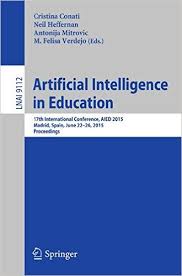Adult Learner Perceptions of Affective Agents: Experimental data and phenomenological observations
This paper describes a two-part study of animated affective agents that varied by affective state (positive or evasive) and motivational support (present or absent). In the first study, all four conditions significantly improved learning; however, only three conditions significantly improved math self-efficacy, the exception being the animated agent with evasive emotion and no motivational support. To help in interpreting these unexpected results, the second study used a phenomenological approach to gain an understanding of learner perceptions, emotions, interaction patterns, and expectations regarding the roles of agent affective state and motivational support during the learning process. From the qualitative data emerged three overall themes important to learners during the learning process: learner perceptions of the agent, learner perceptions of self, and learner-agent social interaction. This paper describes the results of the phenomenological study and discusses the findings with recommendations for future research.

